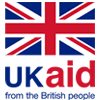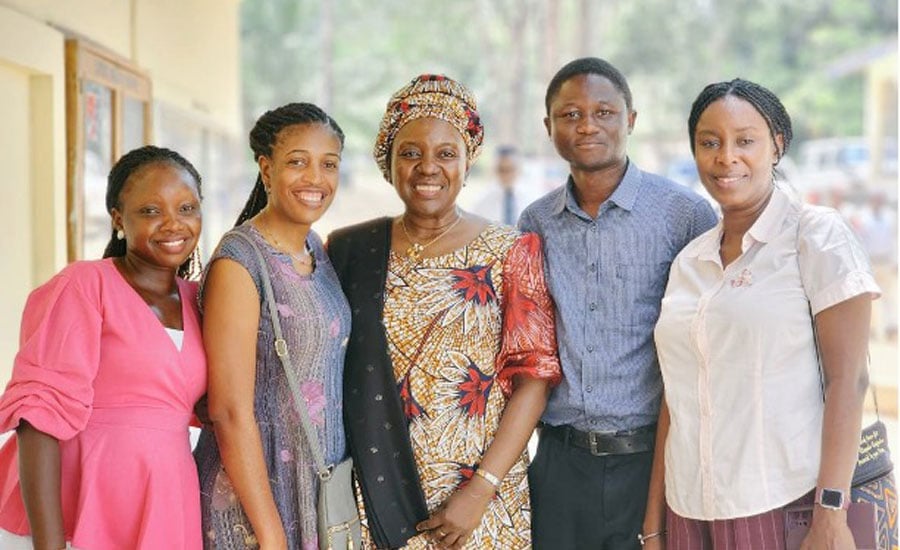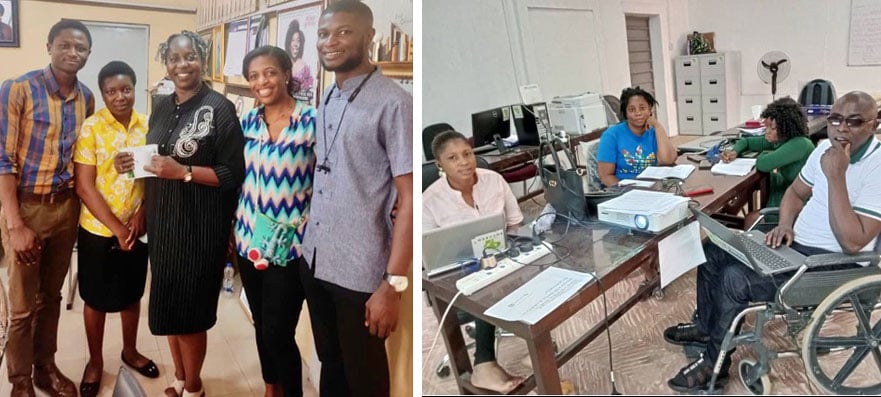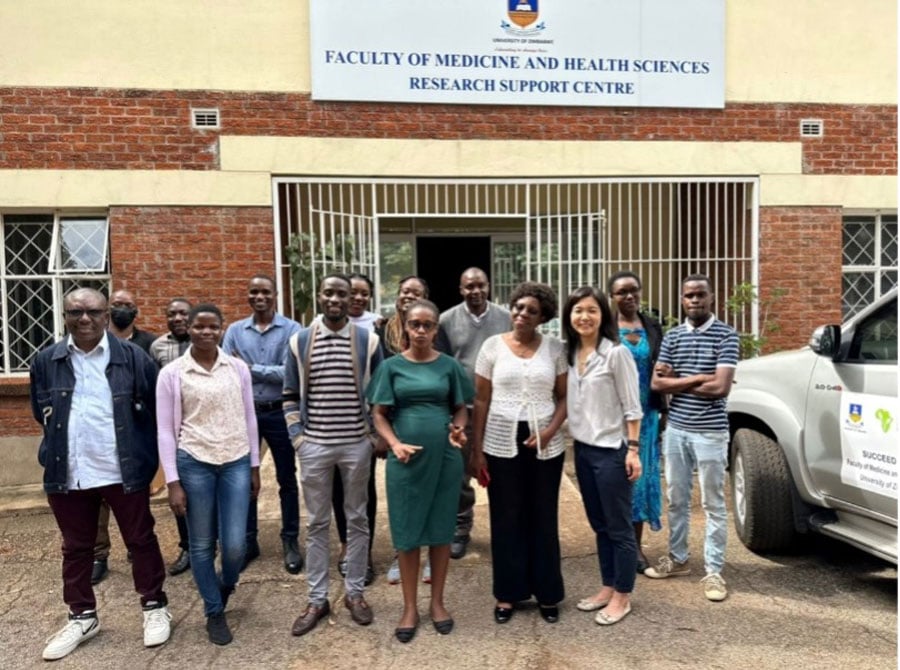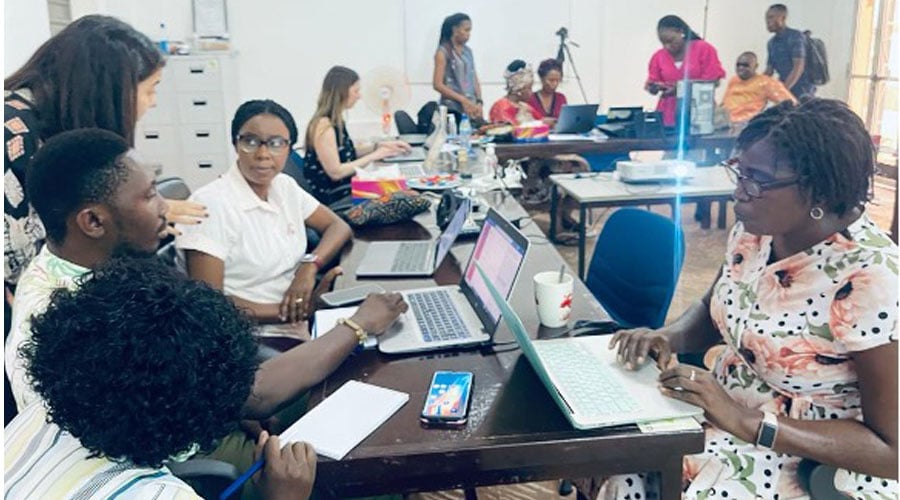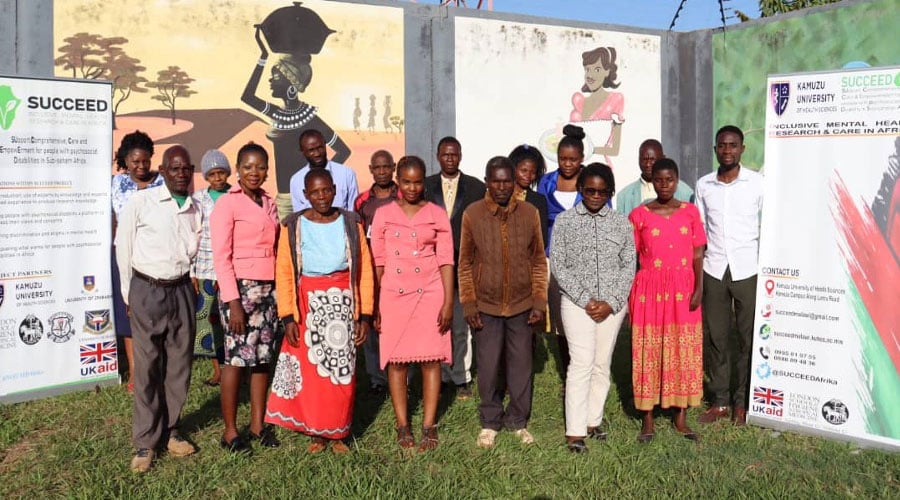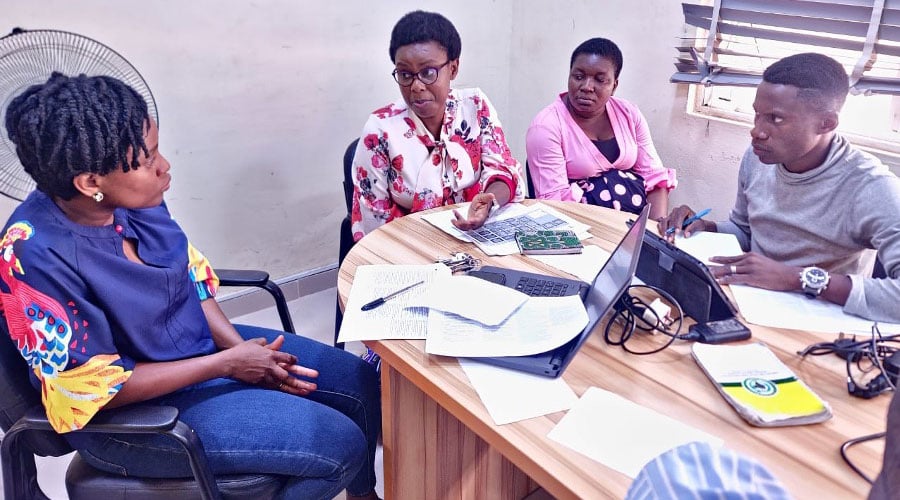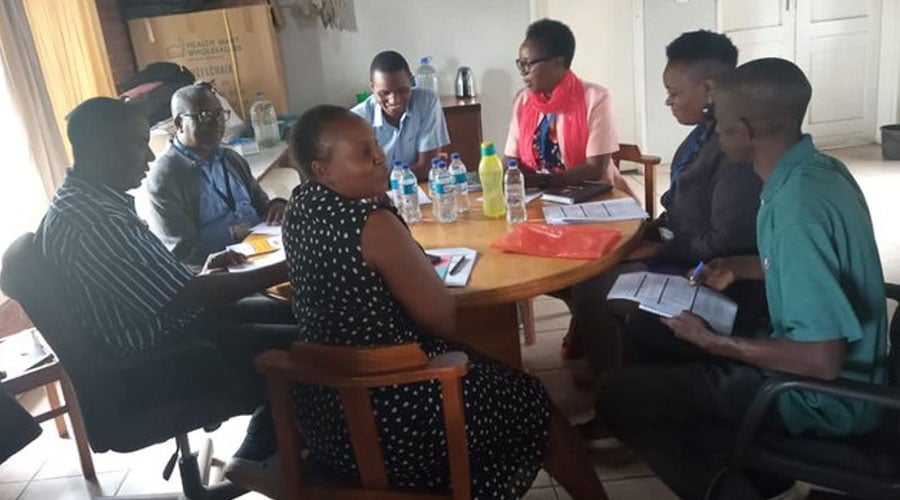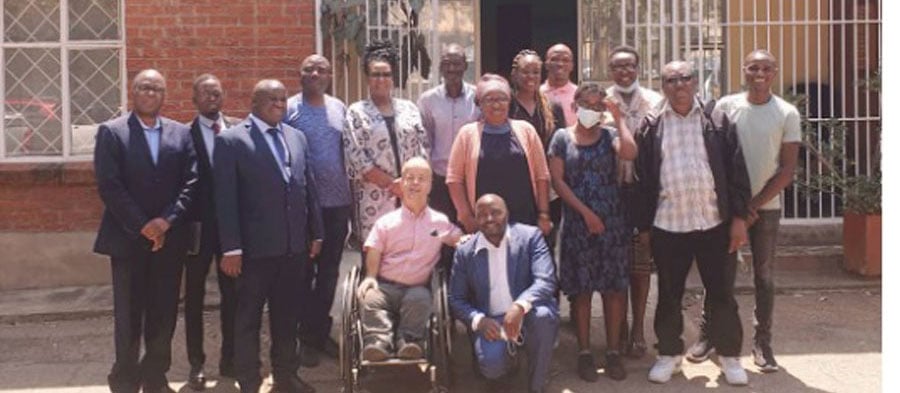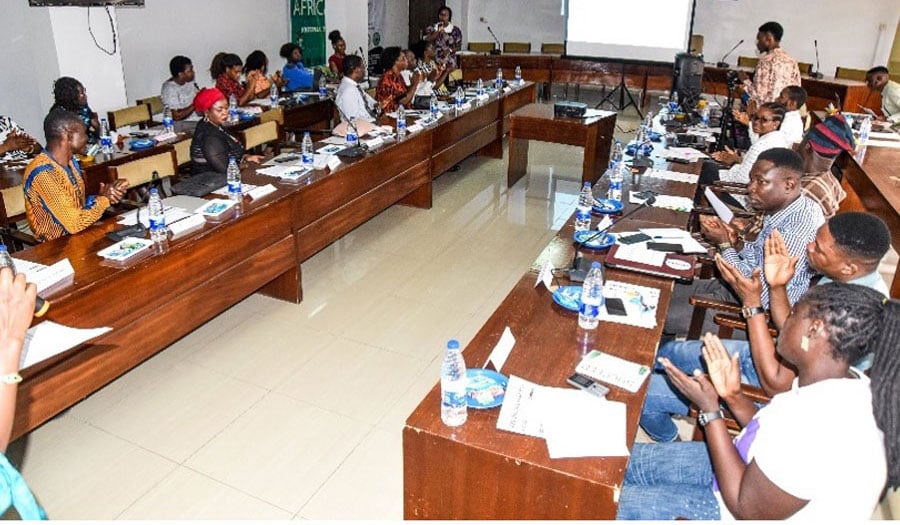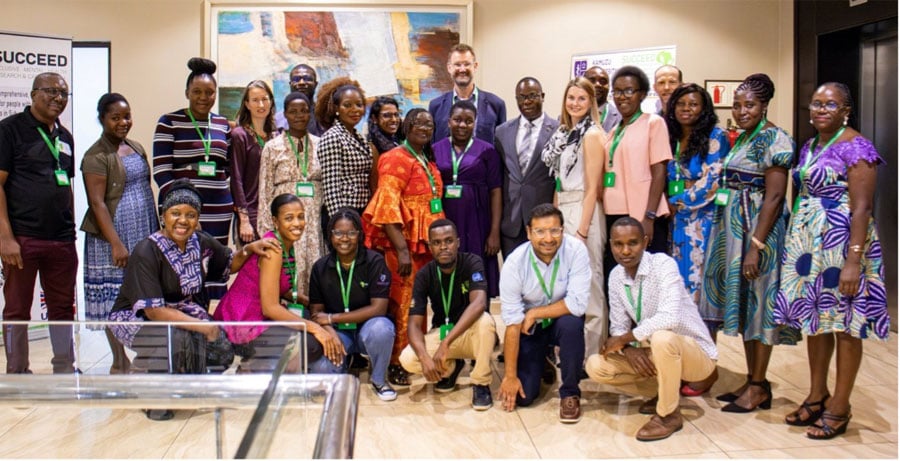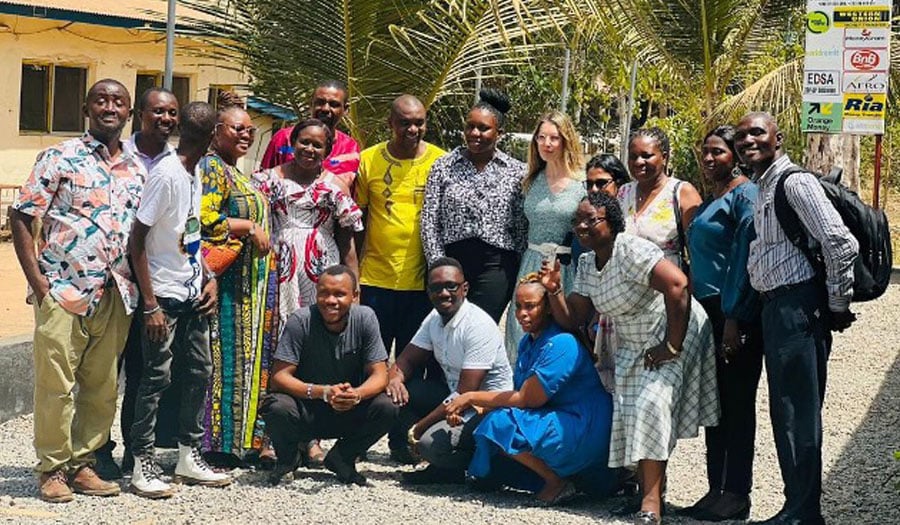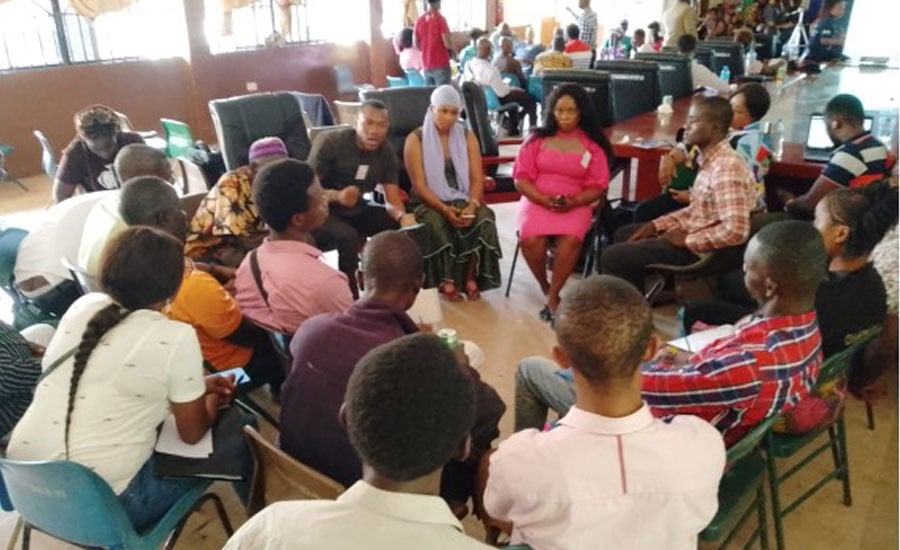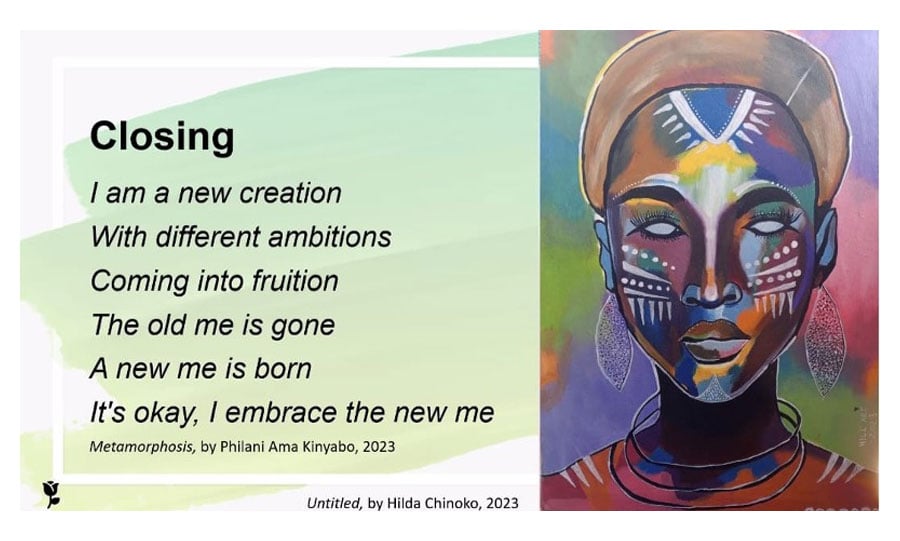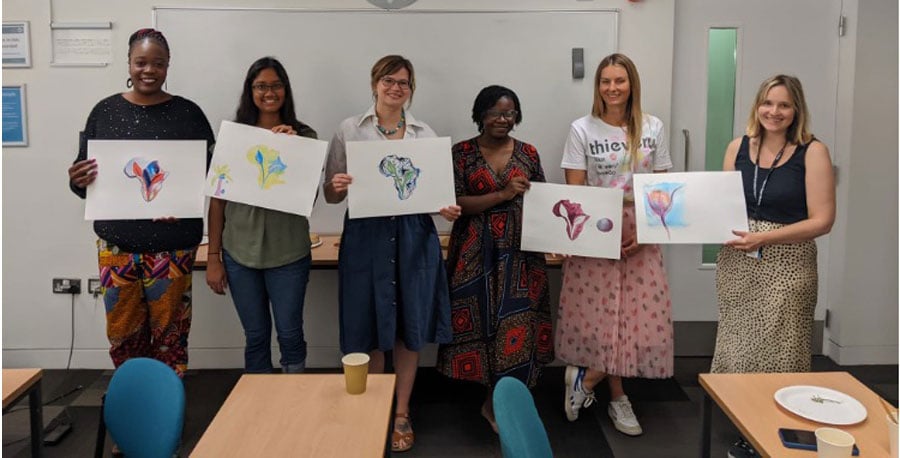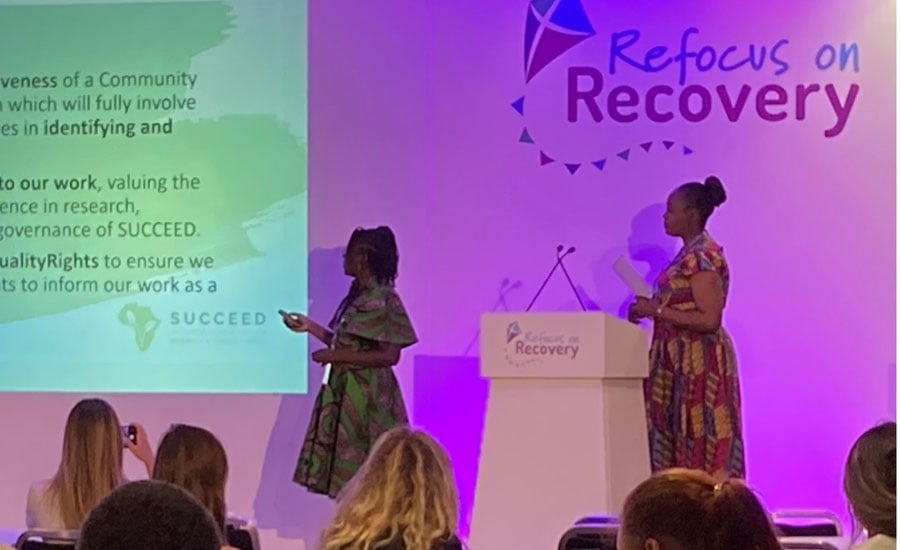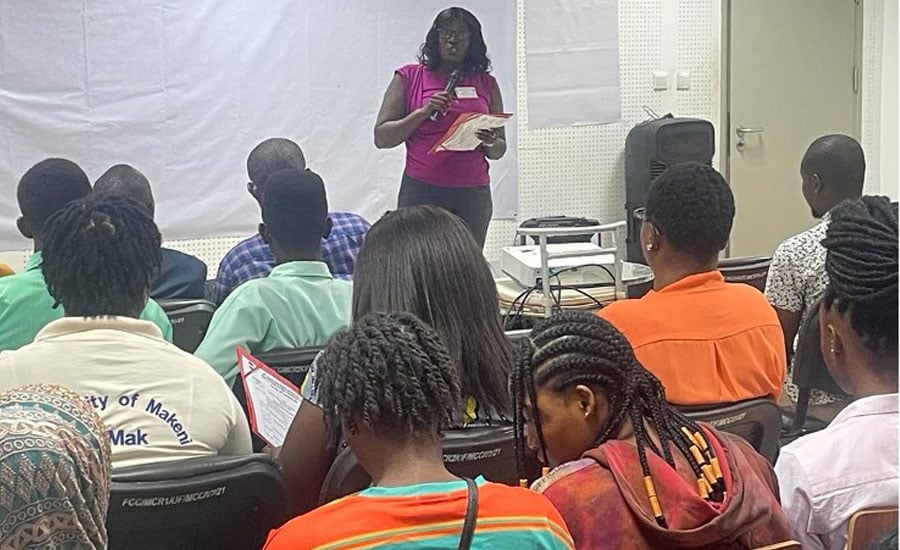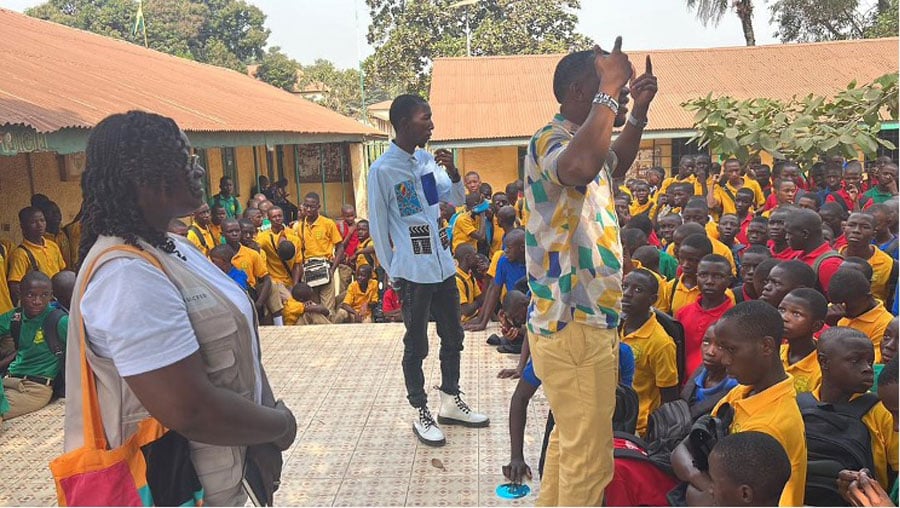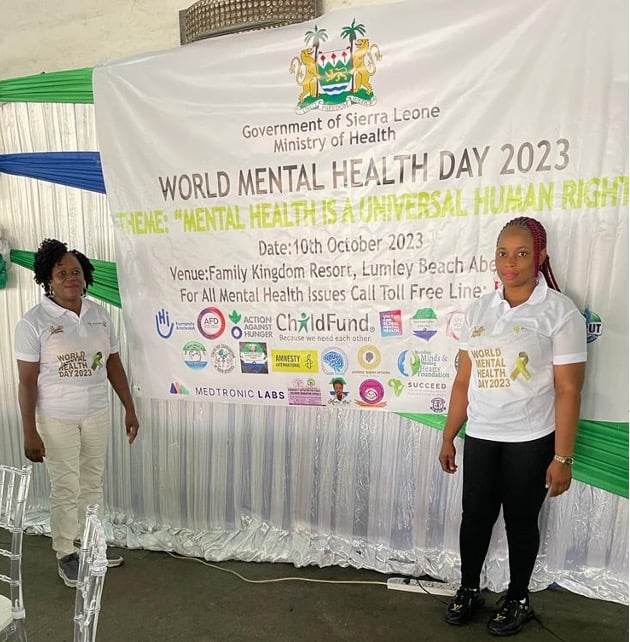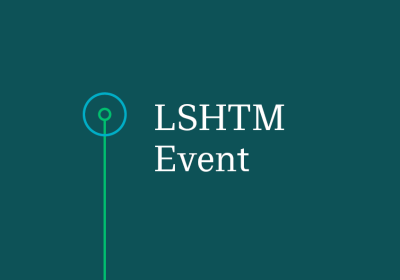People with mental health conditions and psychosocial disabilities have a range of concerns that are not always addressed by health services alone. SUCCEED Africa is an international research consortium taking a bottom-up approach to investigate “What Works” for people with psychosis in their communities. SUCCEED Africa will co-produce a six-year programme of research to understand needs, collaborate in designing solutions, and evaluate their impact. In the process, SUCCEED Africa will develop local centres of excellence in co-production in Malawi, Nigeria, Sierra Leone and Zimbabwe.
SUCCEED Africa’s programme of work is divided into three work packages (Research, Capacity-Building and Uptake) united around six six cross-cutting objectives.
People with mental health conditions and psychosocial disabilities have a range of concerns that are not always addressed by health services alone. SUCCEED Africa is an international research consortium taking a bottom-up approach to investigate “What Works” for people with psychosis in their communities. SUCCEED Africa will co-produce a six-year programme of research to understand needs, collaborate in designing solutions, and evaluate their impact. In the process, SUCCEED Africa will develop local centres of excellence in co-production in Malawi, Nigeria, Sierra Leone and Zimbabwe.
The SUCCEED programme of "SUpport, Comprehensive Care and EmpowErment for people with psychosocial Disability in Africa" is funded by UK aid from the UK government; however the views expressed do not necessarily reflect the UK government’s official policies.
View the video about the SUCCEED programme.
Our work
SUCCEED Africa’s programme of work is divided into three work packages (Research, Capacity-Building and Uptake) united around six six cross-cutting objectives:
- Build capacity for co-production between researchers, providers, people with psychosis and families.
- Co-produce new tools, including outcome measures, for improved research on psychosis.
- Synthesise evidence on “What Works” for psychosis in sub-Saharan Africa and for psychosocial disabilities more broadly in low- and middle-income countries.
- Build on this evidence to co-produce interventions for people with psychosis in community settings.
- Use our tools to evaluate the implementation and effectiveness of these interventions.
- Increase uptake of evidence-based guidelines based on our research.
Collaborations
MHIN
SUCCEED Africa currently hosts the Africa hub for the Mental Health Innovation Network (website). Some of the work we are doing include developing the Africa hub community, managing the MHIN Africa X page (add X), producing videos and graphics and working alongside the MHIN Asia and MHIN Latin America and Caribbean hubs and global mental health research and innovation community.
See our tweet on suicide prevention.
- LSHTM
Current team
- Dr Julian Eaton, Consortium CEO
- Professor Tom Shakespeare, Research Director/Principal Investigator
- Dr Ritz Kakuma, Capacity Building manager
- Ms Grace Ryan, Research Programme Manager
- Dr Anna Cronin de Chavez, Research Uptake Co-manager
- Ms Rachel Greenley, Capacity Building manager
- Ms. Caroline Strickson, Project Co-ordinator
- Ms. Erin Burn, Project Manager
- Ms. Suzanne Welsh, Project Manager
- Miss Vishna Shah, Trial Manager
Colleagues who have also worked in this team
- Ms Veronika Reichenberger, MOOC coordination
- Ms Katie Atmore, Trial manager
- Ms Onaiza Qureshi, Uptake manager/MHIN
- Ms Natasha Salaria, Communications and uptake manager/MHIN
- University of Ibadan, Nigeria
-
Current team
- Prof Olayinka Omigbodun, Principal Investigator
- Dr Tolulope Bella-Awusah, Co-Investigator
- Dr Haleem Abdurahman, Co-Investigator
- Dr Olubukola Omobowale, Co-Investigator
- Mr Olayinka Bamidele, Programme Manager
- Dr Rita Tamambang, Programme Manager
- Ms Olayinka Aturu, Peer Researcher
- Bisola Fasoranti, Peer Researcher
- Mayowa Malomo, Peer Researcher
- Mr Chuka Ononye, Research Uptake and Communications Manager
- Dr Olayinka Egbokhare, Research Uptake and Communications (RUC) Consultant
- Mr Olusegun Ogunmola, Team Member
- Mr Christopher Scott, Admin Unit
- Mr Oluwatomisin (Tomisin) Ogunmola, Administrative Assistant
Colleagues who have also worked in this team
- Dr Kehinde Lawal, Team member
- Dr Yetunde Adeniyi, Team member
- Mrs Adeola Afolayan Finance manager
- University of Makeni, Sierra Leone
Current team
- Dr Rebecca Esliker, Principal Investigator
- Ms. Veronica Ramatu Kamara, Co-PI & Programme Manager
- Mr Abraham Isiaka Jimmy, Research coordinator
- Mr Alhaji Koroma, Capacity Building Officer
- Ms. Nancy Amanda Stevens, Peer Researcher
- Ms. Patricia Kamara, Administration Financial Officer
- Mr Andrew Sesay, Uptake Manager
- Mr Matthew Kanu, Communication Manager
- Ms. Esther Moses Kamara, Peer researcher
- Mr Amjata Bayoh, Research Assistant
Colleagues who have also worked in this team
- Ms. Shaza Dous, Co-PI; Programme Manager
- Mr Abubakar Koroma, training officer
- Mr Saumitr Dixit, training officer
- Mr William Alpha, team member
- Ms. Hawanatu Gbla, Finance Administration Officer
- Mr. Alhaji Sesay, training officer
- Mr John Abu Sesay, training officer
- Mr Edward Kargbo, Uptake manager
- University of Zimbabwe, Zimbabwe
Current team
- Professor Dixon Chibanda, Principal Investigator
- Dr Ephiphania Munetsi, Co-Investigator
- Mr Lloyd Dzapasi, Research Uptake and Communications Manager
- Mr Learnmore Meki, Finance/Adminstrative Assistant
- Mr Musa Buyanga, Peer Researcher
- Ms Philani Ama Kinyabo, Peer researcher
- Ms Nyaradzo Goba, Research Assistant
- Mr Tichaona Gumunyu, Research Assistant
- Mrs Beatrice Mtepa, Research Assistant
- Mr Timothy Mushambi, Research Assistant
Colleagues who have also worked in this team
- Ms Kimberley-Eleanor Mareya, Peer researcher
- Kamuzu University of Health Sciences (KUHeS), Malawi
Current team
- Mr Anthony Sefasi, Principal Investigator
- Ms Janet Mambulasa, Programme Manager, Co-I
- Mr Henry Fukiza, Communications Officer
- Ms Faith Mpulula, Research Assistant
- Ms Cecelia Mphanje, Peer Researcher
- Ms Hilda Chinoko, Peer Researcher
- Mr Martin Nkhata, Admin officer
- Mr Mike Rashid, Finance Officer
Colleagues who have also worked in this team
- Ms Agness Aidi, Research Officer
- Ms Martha Mkisi, Research Assistant
- Mr Martin Nkhata, Co-I; Peer Researcher
- Mr Massa Msiska, Admin officer
Publications
- Hunt, X., Abdurahman, H., Omobowale, O., Afolayan, A., Munetsi, E., Dzapasi, L., Mokaya N., Koroma A., Barrie, I., Ogunmola, O., Koroma, A., Shakespeare, T., Eaton, J., Ryan, G. (2022). Interventions for adolescents and adults with psychosis in Africa: a systematic review and narrative synthesis. Global Mental Health, 9, 223-240.
- Omigbodun, O. O., Ryan, G. K., Fasoranti, B., Chibanda, D., Esliker, R., Sefasi, A., Kakuma, R., Shakespeare, T., Eaton, J. (2023). Reprioritising global mental health: psychoses in sub-Saharan Africa. International journal of mental health systems, 17(1), 6.
- Jakobsson, C. E., Genovesi, E., Afolayan, A., Bella-Awusah, T., Omobowale, O., Buyanga, M., Kakuma, R., Ryan, G. K. (2023). Co-producing research on psychosis: a scoping review on barriers, facilitators and outcomes. International Journal of Mental Health Systems, 17(1), 25.
- Bella-Awusah, T., Abdurahman, H., Omobowale, O., Aturu, O., Afolayan, A., Ogunmola, O., Fasoranti, B., Olusanmi, M., Tamamban, R., Bamidel, O., Ruan, G., Shakespeare, T., Eaton, J., Omigbodun, O. (2024). Lessons of Hope and Resilience: A Co-produced qualitative study of the experiences of Youth living with psychosis during the COVID-19 pandemic in Nigeria. Community Mental Health Journal, 60(1), 47-59.
Formative research
Multi-Method Pilot Study of a Community-Based Rehabilitation Intervention for People with Psychosis in West and Southeast Africa
SUCCEED Nigeria team meet to discuss the findings of the pilot intervention
Expert researchers with lived experience
Co-production is central to how we have developed and conducted our research in intervention. We have the benefit of having had people with lived experience with psychosocial disabilities - peer researchers - working in every area and every stage of the SUCCEED Africa project.
Nancy Stevens, Peer researcher, SUCCEED Sierra Leone team. Watch as she shares her journey, rising above the challenges of mental illness to become a champion of mental health advocacy in research, policy, and services.
See our video with Nancy Stevens, our peer researcher from Sierra Leone.
Local Advisory Groups (LAGS)
Each site has a local advisory group that have being meeting in person at least twice a year to help advise us every step of our journey. These groups are made up of local people with lived experience, local disability organisations, health professionals and policy makers.
See a tweet about SUCCEED's UniMak meeting with Local Advisory Group (LAG) on its activities over the year.
Annual cross site and regional consortium meetings
2023
2024
- Annual reports
- Blogs
SUCCEED Africa: We are launching this World Human Rights Day!
- Conferences and presentations
National Mental Health Conference, Sierra Leone, 2022
In 2022 the SUCCEED Sierra Leone team co-hosted the Sierra Leone Annual National Mental Health Conference Seminar on co-producing a rights-based, recovery-oriented intervention for psychosis in sub-Saharan Africa. 4 September 2023. London, UK
London School of Hygiene and Tropical Medicine, UK & online. Speakers: Hilda Chinoko (SUCCEED Malawi) and Philani Ama Kinyoba (SUCCEED Zimbabwe).
Closing slide by Hilda Chinoko (SUCCEED Malawi) and Philani Ama Kinyoba (SUCCEED Zimbabwe). Seminar activity: UK, Zimbabwe and Malawi team members Refocus on Recovery Conference, Nottingham, UK. 7 September 2023
Watch the seminar recording.
Annual National Mental Health Conference, Sierra Leone, November 2023
Discussing the work of SUCCEED at the Sierra Leone annual Mental Health Conference, November 2023 Lecture series presentation about mental health and SUCCEED at St. Francis Senior Secondary School. Makeni, Sierra Leone. February 2024
SUCCEED at St. Francis Senior Secondary School. Makeni, Sierra Leone. - International health and human rights days
International Women’s Day 2023
See our tweet on International Women's Day 2023.
World Schizophrenia Day 2023
See our tweet on World Schizophrenia Day 2023.
World Suicide Day 2023
See our tweet on World Suicide Day 2023.
- SUCCEED Newsletters
- Radio presentations
Radio Bintumani (FM3.7) Kabala, Sierra Leone, World Mental Health Day discussion 2022
Life Radio, Nigeria, October 2023
SUCCEED Nigeria with the Asido Foundation discussing mental health in local language at Life Radio (107.5), Nigeria - TV presentations
Times TV, Malawi, February 2024
SUCCEED Malawi team with implementing partner MeHUCA discussing mental health on Times TV, February 2024 - World Mental Health Day
Each year we organise a range of local in-person and online activities to create awareness for World Mental Health Day. These activities have included talks, marches and videos.
World Mental Health Day 2022
See our tweet on World Mental Health Day 2022.
World Mental Health Day 2023
See our tweet on World Mental Health Day 2023.
See our tweet on the Mental Health Awareness march, Zimbabwe
Engaging with policy makers, Malawi Collaborating with stakeholders for mental health awareness, Sierra Leone





